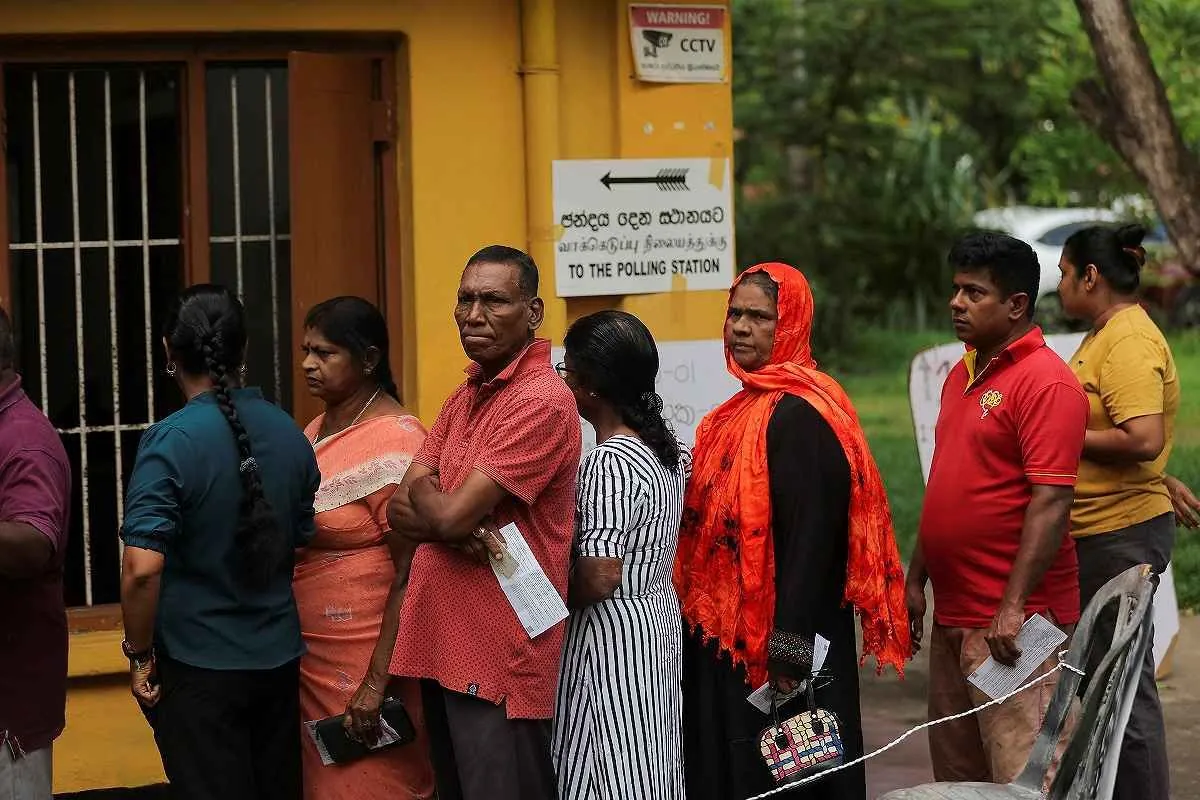In a significant political development, Anura Kumara Dissanayake, a candidate with Marxist leanings, has emerged as the frontrunner in Sri Lanka's presidential election. As of September 22, 2024, preliminary results indicate Dissanayake's substantial lead, capturing approximately 54% of the half-million votes tallied thus far.
The election, which took place on September 21, 2024, saw a robust voter turnout of 75%, with about 12.75 million of the eligible 17 million citizens casting their ballots. This high participation rate underscores the importance of this election for Sri Lanka, a nation grappling with economic challenges and seeking stable leadership to guide its recovery.
Following Dissanayake in the vote count is opposition leader Sajith Premadasa, who has secured 20% of the votes. Incumbent President Ranil Wickremesinghe is currently in third place, trailing Premadasa by a narrow margin of a few thousand votes.
This election is crucial for Sri Lanka, which has been striving to overcome recent economic hardships. The country faced a severe economic crisis in 2022, leading to shortages of essential goods and defaulting on its foreign debt for the first time in its history. The new president will be tasked with implementing economic reforms and steering the nation towards stability.
Sri Lanka, an island nation in the Indian Ocean with a population of approximately 22 million, has a diverse economy primarily based on services, agriculture, and industry. Known for its tea exports, which are a significant source of foreign exchange, the country has been working to address its debt crisis and revitalize its economy.
The nation's political landscape is characterized by a multi-party system and a semi-presidential form of government. Sri Lanka has faced political instability and protests in recent years due to economic difficulties, making this election particularly significant for its future direction.
As the vote counting continues, the international community watches closely, recognizing the importance of Sri Lanka's economic recovery and political stability in the region. The final results of this election could have far-reaching implications for the country's economic policies and international relations.
"We are pleased with the high voter turnout, which demonstrates the Sri Lankan people's commitment to democratic processes. The counting is ongoing, and we urge all parties to respect the electoral process and await the final results."
Sri Lanka, which gained independence from British rule in 1948, has a rich cultural heritage and is home to eight UNESCO World Heritage Sites. With a literacy rate of over 90%, one of the highest in South Asia, the country faces the challenge of aligning its educated workforce with economic opportunities.
As the nation awaits the final election results, the focus remains on the potential for new leadership to address Sri Lanka's economic challenges and guide the country towards a more stable and prosperous future.
